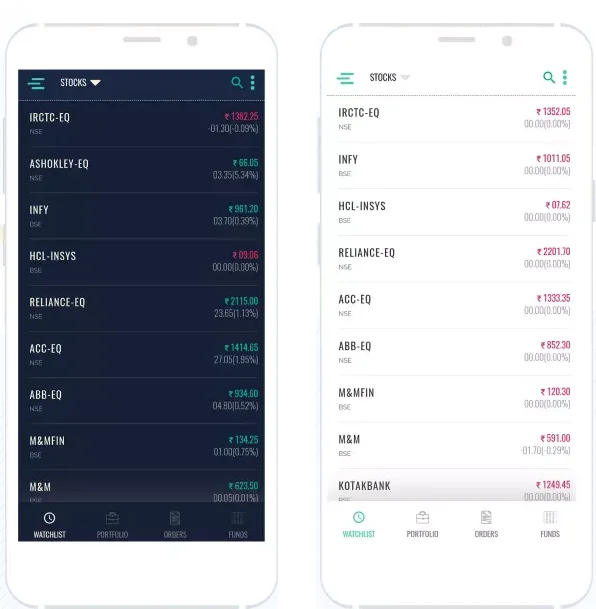Does the Fund Manager Matter?

Now, we are in the final chapter of Mutual Funds. Hurrah!! We have come a long way. And it was really fun learning together. Isn’t it? The ending chapter covers everything about the fund manager, followed by their roles and responsibilities and a deeper understanding of the subject. I (Shalini) have already shared these with Raju while we were on a trip last month, so he’s doing great with his investments. I’m one-hundred percent sure you are looking forward to utilizing your savings properly as well. In that case, knowing these key points will certainly put you two steps ahead of the investors who are oblivious about fund managers.
Introduction
Mutual funds are managed professionally by experienced top fund managers. Starting from studying the fund and conducting market research to churning the fund’s portfolio and buying and selling securities, the funds manager does it all. In addition to that, the mutual fund manager administers all the activities of the fund, manages the team of analysts, allocates the assets for favorable profits, and makes key investment decisions.
Investors choose mutual funds over equity stocks because they are getting expert treatment from the best fund manager, followed by a few other benefits like wealth growth, flexible investment options, highly liquid, the safety of investments, and perfect for tax savings. All the aforementioned perks are great, but the real question is does the fund manager matter? Well, let’s find out in this chapter.
What Is a Fund Manager?
A mutual fund without a fund manager is like baking a cake without the chef. It takes so much effort and time for an investor to study the market, understand the continuous fluctuations and volatility, keep a tab of ups and downs, and figure out which fund would be appropriate for solid income generation. That’s when the mutual fund manager comes into the picture. The mutual fund company appoints the funds manager to operate the portfolio of funds.
The mutual fund manager works towards achieving the objective of the fund by incorporating multiple investment strategies. At times of complexity, a fund is co-handled by a group of top fund managers. Investors put their hard-earned cash in the hands of these experts with high expectations in return. They are the experts who make decisions to buy and sell certain securities on behalf of the investors.
For offering these professional services, they charge a certain amount called a management fee. Although mutual funds are linked to market forces, their performance is in the hands of the investment fund manager. The top fund managers work their way up to outperform the market and benchmark index. They manage portfolios both actively and passively. While the former charges a higher expense ratio because the mutual fund manager closely manages the fund, the latter mimics the index, hence the low expense ratio.
Understanding Fund Managers
Knowing a mutual fund manager and their past experience doesn’t finish the job. There’s more than what meets the eye. Investors have to extract additional information by doing some research on the funds manager. Education also plays a key role in manifesting the intellectuality of the mutual fund manager, as it’s the foundation stone for any individual. Subsequently, industry experience, track records, and achievements add up to the list.
The funds manager starts their job with studying the market, keeping a keen eye on every movement and fluctuation, works hand in hand with the other analysts for background research purposes, selects appropriate financial avenues to invest (equities, bonds, ETFs), and ensures higher returns on the fund. They look after both actively managed and passively managed funds, but their major works are involved in the former rather than the latter.
The top fund managers are always one step ahead in gaining timely information. Their important goal is to outperform the inflation and the benchmark index. Not only does the best fund manager take calculated risks, but also delivers his promises. Moreover, an expert investment fund manager tries to avoid perpetual portfolio churning, because it ruins the investor’s account, and eventually, results in losses.
Responsibilities Of Fund Managers
There are so many factors involved before considering the credibility of a fund manager. The fund manager has a handful of responsibilities starting from the launch of the fund till it generates great returns to the investors. Below we have outlined a few responsibilities of the fund manager.
- Asset Allocation: The fund manager allocates the funds to multiple assets based on their risk-return value. They conduct background research, study the stocks, their past performance, compute ratios, and then make a decision on whether to invest in them or not. To keep abreast of all the market trends, the fund manager should work hand-in-hand with the analysts.
Based on the research, and by keeping the objective of the fund, the fund manager buys and sells securities or stocks accordingly. If the goal of the fund is to get more returns, his investments will be more into equity and less of debt. Whatever be the market situation, the end goal of the fund manager is to grow the fund and generate good returns for the investor.
- Making Reports: This is another key responsibility of the mutual fund manager. They make reports of the schemes by incorporating their past performances for the prospective clients and sharing them. These reports show portfolio details, risks involved, and the objective of the scheme. These reports are shared by the fund manager to all their clients and investors explaining the performance of the fund, followed by the reasons for making such decisions. By reviewing these reports, investors/clients get a holistic view of the fund before making their move to invest.
- Supporting The Staff: The mutual fund manager works conjunctly with his staff of researchers and analysts. These people are the backbone for any fund, as they are the ones who do the auxiliary work like researching and analysing the stocks. In some companies, the mutual fund manager also supervises pensions along with the funds.
Active vs. Passive Managers
When it comes to investing in actively managed funds, the active funds manager is responsible for making all the decisions, whereas, in passively managed funds, the role of the funds manager is limited to small adjustments. The active mutual fund manager works on his strategies to beat the benchmark index. He employs his time and energy in finding the right stocks, bonds, and securities with his research skills, knowledge, and expertise in the field. As active fund managers are overseeing the funds from scratch, they charge a higher management fee. On the other hand, the passive fund managers dealing with passive funds don’t need to work on any research or analysis. Instead of outshining the index, here, the passive funds manager makes an effort to mimic the benchmark index returns. Plus, passive fund managers charge substantially low because there is very little work in researching the stocks or the market. And everything is taken care of by the index.
Now, head to the next module to get a detailed understanding of the nitty-gritty of picking a fund, assessing your returns, understanding the costs associated with investing in funds, and very importantly, the tax-saving possibilities of funds!
In a nutshell
- A Fund Manager is like the chef. Without them, mixing and cooking the ingredients cannot happen. The same goes in the case of handling mutual funds.
- The fund manager ensures that the funds perform at par if not better than the benchmark
- There are mainly two kinds of Fund Managers. Active and Passive. While active fund managers constantly aim to beat the benchmark index, passive fund managers focus on being at par with the benchmark index.


How Would You Rate This Chapter?
Next
Comments (0)